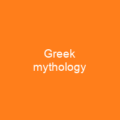What Is Tragedy?
Tragedy, a genre that delves into human suffering and sorrow, has been a cornerstone of dramatic arts for centuries. It’s not just about the tears shed on stage; it’s about the profound emotional journey that resonates with audiences. Have you ever wondered why we continue to be drawn to stories that make us feel so deeply? The answer lies in the very essence of tragedy.
The Origins and Evolution of Tragedy
Tragedy, as we know it today, has its roots in Ancient Greece. The term tragedy comes from the Greek word τραγῳδία (tragōidia), which might have originated from a competition between choral dancers and a goat. This early form of drama was not just entertainment; it served as a means to explore human emotions and societal issues.
The concept of tragedy has evolved significantly over time, influenced by philosophers like Aristotle, Plato, Nietzsche, and Freud. Each thinker brought their unique perspective, shaping the genre in ways that continue to resonate with us today. From the complex narratives of Sophocles to the psychological depth of Shakespeare, each playwright added layers to this rich tapestry.
The Role of Tragedy in Western Civilization
Tragedy has played a unique role in shaping Western civilization. Think about it: from ancient Greece to modern times, we’ve seen countless examples that have left an indelible mark on our cultural identity and historical continuity. How many times have you found yourself captivated by the stories of Aeschylus, Sophocles, or Shakespeare? These playwrights not only entertained but also taught us about the human condition.
During the Roman period, tragedy continued to thrive, with works like those by Seneca providing a bridge between classical and modern forms. The Renaissance saw a revival of interest in Greek drama, leading to new interpretations that continue to influence literature and theater today. From the French tragedies of Racine to the domestic dramas of Shakespeare, each era has its own unique take on this timeless genre.
The Structure and Performance of Athenian Tragedy
Athenian tragedy is a fascinating glimpse into ancient theatrical practices. These plays were performed in late March/early April at an annual state religious festival honoring Dionysus, the god of wine and theater. The performances took place in open-air theaters like the one at Athens, which could hold around 12,000 people.
Each play was a tetralogy consisting of three tragedies and a satyr play, with all actors wearing masks and singing parts of their lines to the accompaniment of an aulos. The ekkyklêma, a platform hidden behind the scene that could be rolled out to display the aftermath of some event, was a theatrical device used in these performances.
The Spread of Tragedy Across Europe
With the expansion of the Roman Republic into Greek territories between 270 and 240 BCE, tragedy began its journey across Europe. By the time of the Roman Empire, it had spread to Britain and other parts of the continent. The works of Livius Andronicus, Quintus Ennius, Marcus Pacuvius, and Lucius Accius were among the earliest significant contributions to Roman literature.
During the Renaissance, classical Greek drama saw a revival, with Seneca’s works serving as models for humanist tragedies. Italian playwrights like Gian Giorgio Trissino wrote in vernacular languages, adhering to classical rules. In France and Britain, tragedy evolved further, influenced by Spanish Golden Age playwrights and domestic dramas.
Modern Interpretations of Tragedy
In modern times, the definition of tragedy has become less precise. Arthur Miller’s essay ‘Tragedy and the Common Man’ (1949) argued that tragedy could also depict ordinary people in domestic surroundings. Examples like Froth on the Daydream, The Road, and The Handmaid’s Tale continue to explore this genre, showing how it can be adapted to reflect contemporary issues.
Oscar Mandel contrasted two ways of defining tragedy: the derivative way and the substantive way. Aristotle identified four species of tragedy, each with its own characteristics. G.W.F. Hegel applied his dialectical approach to epistemology and history to his theory of tragedy, suggesting that Greek tragedy features a conflict between complementary branches, while modern tragedy is characterized by a conflict between subject and object.
The Impact of Tragedy on Society
Tragedy has the power to evoke strong emotions in us. It’s not just about the story; it’s about the catharsis that comes from experiencing the suffering of characters. Aristotle believed that tragedy results in a purgation or healing for the audience through their experience of fear and pity.
The tragic hero’s hamartia, or mistake, often leads to a reversal of fortune, causing us to reflect on our own lives and choices. In modern times, we see this reflected in works like Hamlet, where death is an inherent part of the character’s soul rather than something external.
Tragedy continues to evolve, adapting to new forms and interpretations. From opera to neo-classical plays, each era brings its own unique perspective on this timeless genre. As we continue to explore tragedy, we are reminded of the enduring power of storytelling to touch our hearts and minds.

You want to know more about Tragedy?
This page is based on the article Tragedy published in Wikipedia (retrieved on January 27, 2025) and was automatically summarized using artificial intelligence.







